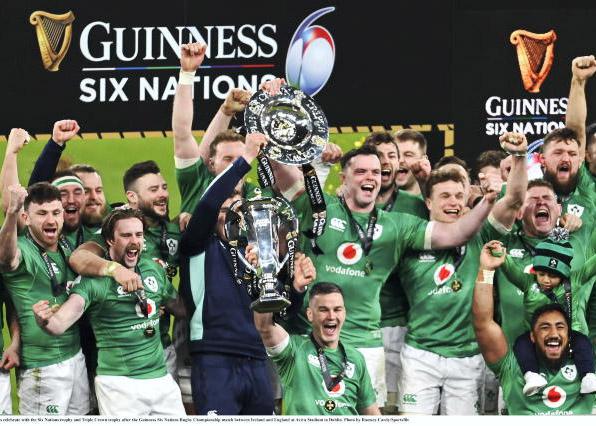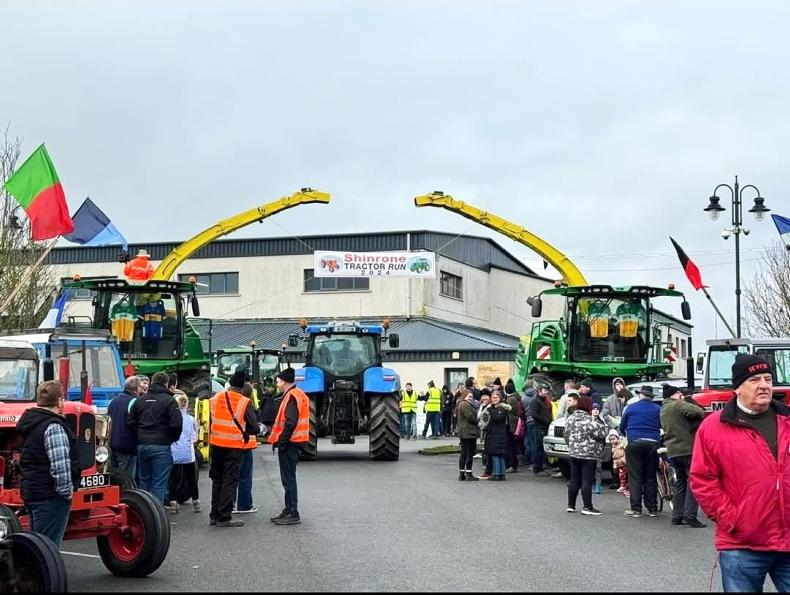While Ray Houghton putting the ball in the English net is the abiding memory of the Republic of Ireland’s journey at Euro 88, the role of Scotland’s Gary Mackay shouldn’t be forgotten.
Jack Charlton’s side had completed their qualifying campaign with a 2-0 win at home to Bulgaria in October 1987, a result which put them a point ahead of their visitors, but Bulgaria had one game remaining, at home to Scotland on November 11 and also possessed a better goal difference.
RTÉ broadcast the game in Sofia, and as time ran out it looked as if it was heading for a scoreless draw, which would be enough for Bulgaria to progress to the finals in West Germany.
That was until Mackay’s popped up with an 86th-minute winner to set in train an unforgettable journey.
Now, ahead of a pivotal weekend of rugby, Ireland could once again be looking for a Scot to provide another Mackay moment.
With Scotland having beaten Russia on Wednesday, things are finely poised in Pool A. Joe Schmidt’s side do at least know that a win against Samoa will guarantee a quarter-final spot, even if it is almost certainly the booby prize of a last-eight meeting with New Zealand.
However, if Samoa are seen off with a bonus-point, it will be a case of waiting a day to see how Scotland fare against Japan.
Victory for the Japanese will see them top the group, but if Gregor Townsend’s side come out on top then Ireland should claim top spot, setting up a quarter-final meeting with South Africa. Not that that will be much easier than a New Zealand clash, realistically.
Finding a performance
The problem is that, in the public consciousness, there is little optimism that Ireland could cause an upset against the All Blacks in the way that, say, France seem to be able to put a poor pool stage behind them and then uproot a few trees in the knockout stage.
For Ireland to progress beyond the quarter-final for the first time, there is a feeling that a series of boxes have to be ticked – essentially win the group and be in form just in time for the quarters – in order for things to work out. The idea of pulling a performance out of the bag without first creating a platform for it is seen as fanciful and maybe that is the case until Ireland do break the glass ceiling and make the semi-finals.
However, in both the 2011 and 2015 World Cups, Ireland did everything right in coming out on top of their pools only to fall to Wales and Argentina respectively in the quarter-finals.
Preparation
The problem with such a small field at the top level of international rugby is that it’s hard to judge exactly where you stand. Anything below 10th would be disastrous for a country like Ireland, while to really be in the top two – as opposed to just being ranked first or second – is a massive step.
There’s no disgrace in not being the best, of course, but such is the way of the modern world that you’re either first or nowhere.
We just have to have faith in the team management and players that Samoa will be seen off and then the preparation for the quarter-final, against either of the Southern Hemisphere behemoths, will be as good as it can be. After that, whatever happens, happens. CL
Mageean magic
Someone who is 10th in the world and delighted to be so is Ciara Mageean, who put in a series of impressive runs in the women’s 1500m at the World Athletics Championships in Doha, Qatar.
The Co Down native won over fans thanks to her on-track performances as well as her engaging post-race interviews, pulling out a personal best time of 4:00.15 in the final – just short of breaking the four-minute barrier.
Having previously won European championship medals and competed in an Olympic semi-final, Mageean cited these as her best championships yet. As she put it herself: “For a wee girl from Portaferry, that’s not too bad at all.”
However, her soundbites weren’t limited to humble pronouncements like that, as she also showed herself to be brave enough to put her head above the parapet at a time when doping in athletics is once again a hot topic. Race winner Sifan Hassan of the Netherlands is one athlete who is not above such suspicion, having been coached by Alberto Salazar, who was last week banned for four years by the US Anti-Doping Agency.
While IAAF president Sebastian Coe proffered the view that “athletes talking about externalities are probably not the ones who are going to be walking home with medals”, Mageean wasn’t afraid to take a stand in that regard.
“Not all of us are going to medal,” she said. “It doesn’t mean we’re not as important as the ones standing on the podium. Every one of us is an important voice. I didn’t think that comment was too fair.”
And, while the location of the championships was one which drew criticism, Mageean was able to see the potential positives.
“I’m not complaining about competing here, hopefully this raises a little bit of support for female sport in Qatar.
“I’d love to see this have an impact and hopefully seeing me race on the world stage has had an impact on kids at home as well,” she said.
Noble sentiments and a sign of self-awareness that she was able to see the bigger picture immediately after such a big moment. A perfect role model for those kids she mentions. CL









SHARING OPTIONS